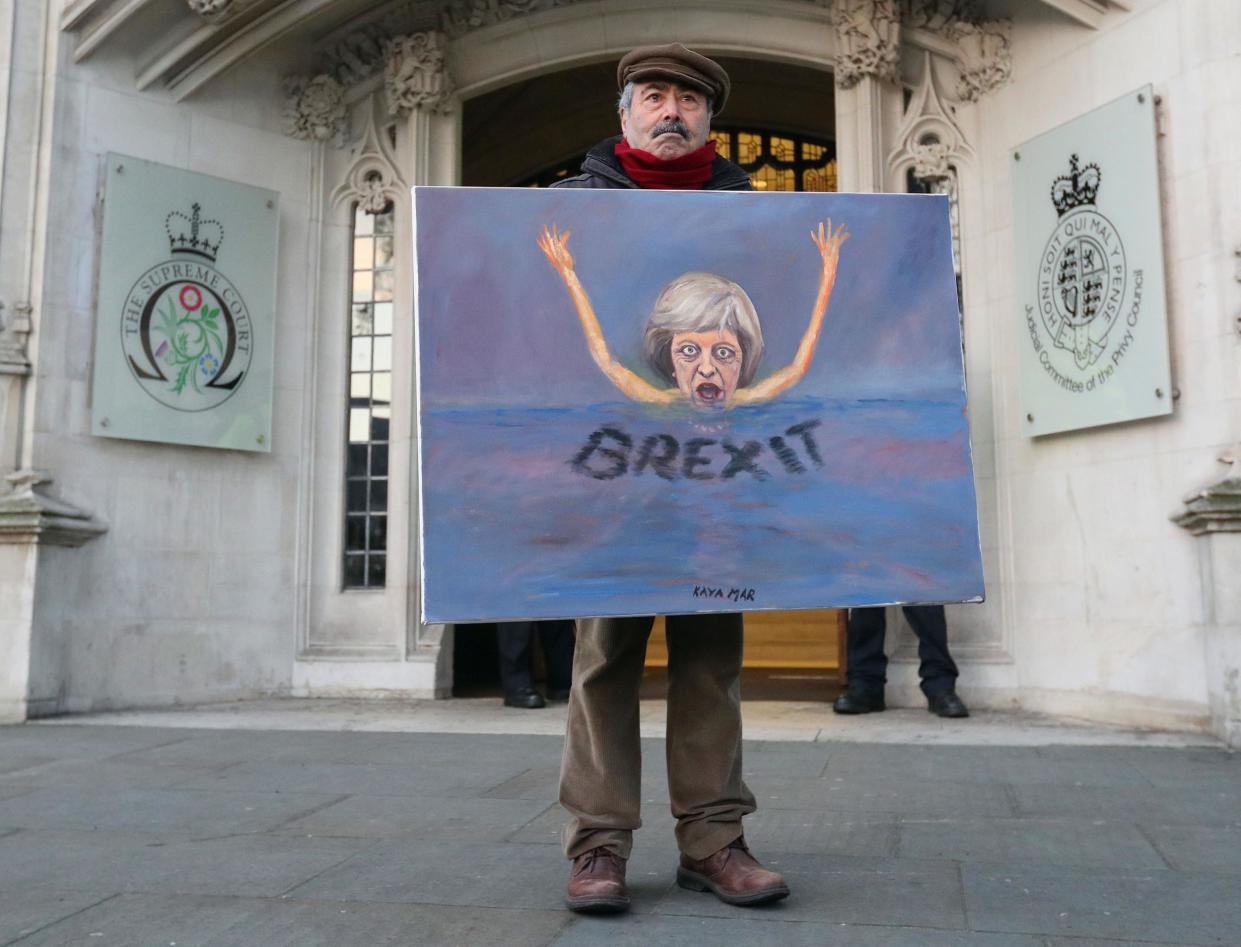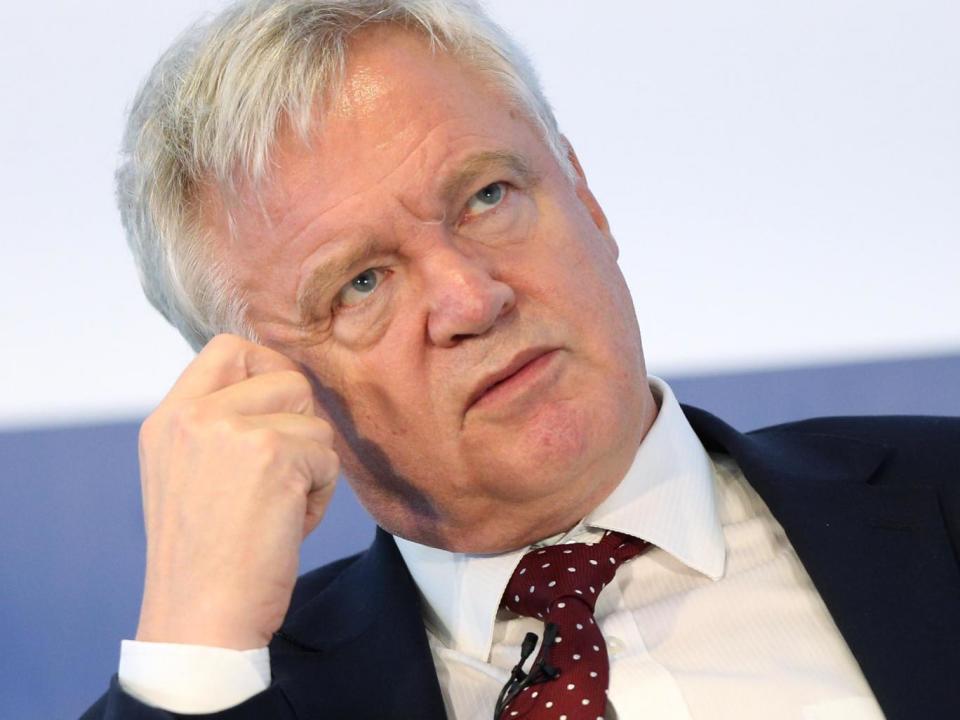Brexit: Theresa May set for U-turn over EU's ability to influence British laws

Theresa May appears to be paving the way for a climb-down on her strict opposition to the European Court of Justice’s role in UK cases after Brexit.
Plans to be published on Wednesday will say Britain wants a deal with Brussels that only ends the “direct jurisdiction” of the court, as opposed to halting its influence outright as previously promised.
The subtle change in language leaves room for ECJ decisions to have more sway in British courts after Brexit and for the court itself to have an indirect role in some cases, even after any transition period is complete.
A Tory MP told The Independent the change is a case of “reality bites” for Ms May, opponents branded it a “climb-down” and “shifting the goalposts”, while European sources suggested it was long-expected in Brussels because her previous stance had been “untenable”.
The issue is particularly dangerous for the Prime Minister, who knows she will face anger from Brexiteers if any deal she agrees does not sufficiently banish the European Court’s influence from post-Brexit Britain.
In January, Ms May pledged in her Lancaster House speech: “We will take back control of our laws and bring an end to the jurisdiction of the [ECJ] in Britain.
“Leaving the European Union will mean that our laws will be made in Westminster... and those laws will be interpreted by judges not in Luxembourg but in courts across this country.”
Despite the absolute promise, Ms May’s ministers had told The Independent weeks earlier they feared it would be impossible to avoid European judges still taking decision in British cases after Brexit.
The document now being published on Wednesday appears to speak to their concerns, only saying the UK will seek to end the court’s “direct jurisdiction”.
A briefing note ahead of publication mentioned the phrase six times, saying the paper will “make it clear that it is not necessary or appropriate for the [ECJ] to have direct jurisdiction over a non-member state”.
The Independent understands that officials already accept that in some civil cases British litigants could potentially find decisions in their cases being taken by the ECJ after Brexit.
On a positive note for the Prime Minister, a prominent Brexit-backing MP told The Independent that while Ms May had to be careful, she did have some space for manoeuvre on the issue.
The senior individual said: “There is room for pragmatism as long as the basic principle of ending the court’s role in British law-making is kept.”
But another Conservative MP was dismayed at Ms May’s handling of negotiations, saying: “It’s a case of reality bites.
“They marched everybody up the hill towards hard Brexit at Lancaster House because they hadn’t done the detailed work in 2016.
“Now we see the influence of the likes of [Deputy PM] Damian Green, [Justice Secretary] David Lidington and [Chief of Staff] Gavin Barwell bringing some balance, because May’s former aides wouldn’t let anyone else have a say.”
In Brussels the move was not unexpected, with one source saying: “It’s not surprising May has weakened her position, because her position was untenable and would have ruled out any withdrawal agreement.
“One wonders what the thinking was behind her Lancaster House speech.”
Labour’s Shadow Brexit Secretary, Keir Starmer, said the Prime Minister’s previous “ideological insistence” that there could be no future role for the ECJ had risked blocking a final deal.
He said: “The repeated reference to ending the ‘direct jurisdiction’ of the ECJ is potentially significant.
“This appears to contradict the red line laid out in the Prime Minister’s Lancaster House speech and the Government’s white paper, which stated there could be no future role of the ECJ and that all laws will be interpreted by judges in this country.”
Liberal Democrat Leader Vince Cable said he welcomed a “sensible and long overdue climbdown”, adding: “The Government seems to have belatedly accepted it won’t be possible to end the EU court's influence in the UK without damaging our free trade and security cooperation with Europe.”

Leading supporter of the Open Britain campaign Chuka Umunna, said: “Their sudden shifting of the goalposts to ending only the ‘direct’ jurisdiction of the ECJ suggests they are paving the way for some sort of climbdown.
“Nothing the Government says it wants to deliver from Brexit – be it on trade, citizens’ rights, or judicial cooperation – can be achieved without a dispute resolution system involving some role for European judges.”
Officials said the paper would set out guiding principles and “reinforce the message that after Brexit, the UK will take back control of its laws”.
It is also expected to provide examples of existing ways of resolving disputes in international agreements, without the ECJ having “direct jurisdiction”.
Ahead of the publication of the paper, a UK Government spokesperson said: “We have long been clear that in leaving the EU we will bring an end to the direct jurisdiction of the Court of Justice of the European Union in the UK.
“It is in the interests of both the UK and the EU, and of our citizens and businesses, that the rights and obligations agreed between us can be relied upon and enforced in appropriate ways.
They added: “This paper takes the next steps as we prepare to engage constructively to negotiate our approach to this.”

 Yahoo News
Yahoo News 
